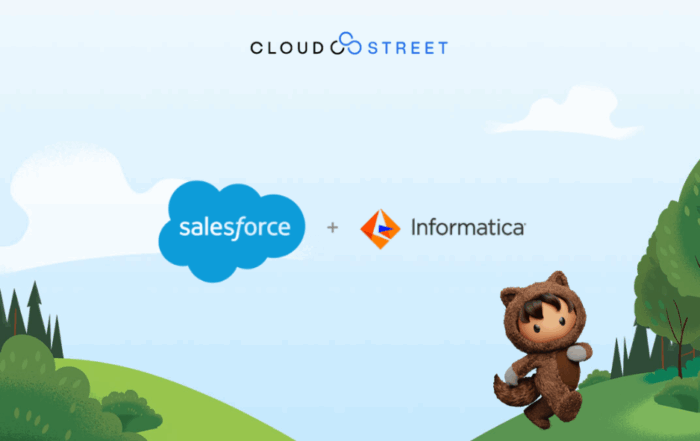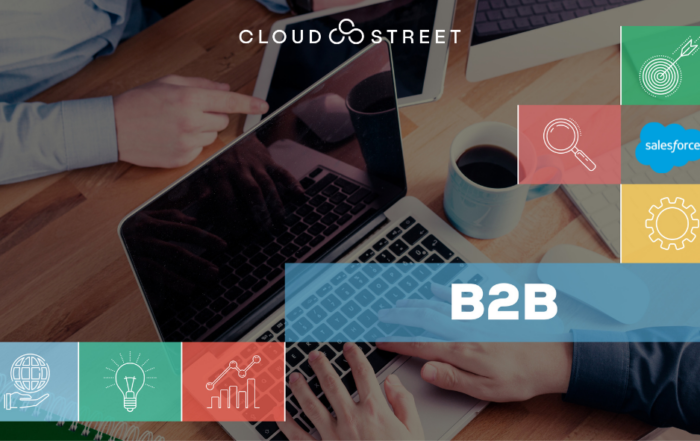Unlocking Growth: How the “One Big Beautiful Bill Act” Could Boost Manufacturing Investment in SaaS (and Solutions Like Salesforce!)

American manufacturing is the backbone of our economy, and staying competitive means embracing new technologies. One of the most powerful tools available today is Software-as-a-Service (SaaS), offering flexible and efficient solutions for everything from operations to customer relationship management. For instance, platforms like Salesforce provide manufacturers with robust CRM and cloud-based tools to streamline sales, service, and marketing. Now, proposed changes in the “One Big Beautiful Bill Act” (OBBBA) could make investing in these crucial SaaS tools, including comprehensive platforms like Salesforce, even more attractive for U.S. manufacturers.
For manufacturing companies considering upgrading their digital infrastructure with powerful SaaS solutions, understanding these potential benefits is key. Let’s break down what this could mean in simple terms.
Making SaaS More Affordable: Tax Savings Ahead?
The OBBBA includes several provisions that could significantly lower the tax burden for businesses investing in software and research, which directly impacts SaaS adoption:
- Write It Off Sooner with Immediate Expensing: One of the headline features is the potential return of 100% immediate expensing (bonus depreciation). Imagine investing in a new system, like deploying Salesforce Manufacturing Cloud to get a 360-degree view of your customers. This provision could allow a manufacturing company to deduct the full cost of that SaaS subscription or software purchase from their taxable income in the very first year, for assets acquired and put to use between early 2025 and early 2030. This frees up cash flow that can be reinvested into the business – perhaps into expanding your Salesforce toolkit or other SaaS solutions!
- Easier Deductions for Software Development & Customization: Many manufacturers develop custom software solutions or significantly modify existing ones – like tailoring a Salesforce implementation with specific apps from the AppExchange to fit their unique processes. The OBBBA aims to allow companies to immediately deduct domestic research and development (R&D) expenses, including software development and customization costs, between 2025 and 2029. This reverses a recent rule that required these costs to be spread out over five years, making it financially easier to innovate and tailor SaaS to specific manufacturing needs.
- Enhanced Expensing for Smaller and Mid-Sized Businesses (Section 179): The bill also proposes to increase the amount small and mid-sized businesses can immediately expense for new or used equipment, including “off-the-shelf computer software” – which can include powerful SaaS subscriptions. The cap could rise to $2.5 million (up from around $1.25 million in 2025). This is a direct incentive for smaller manufacturers to invest in the SaaS tools they need to grow, making platforms like Salesforce Essentials more accessible.
- Lower Taxes for Many Businesses (QBI Deduction): For many manufacturing companies structured as pass-through entities (like S corporations, partnerships, or sole proprietorships), the Qualified Business Income (QBI) deduction can significantly reduce their tax bill. The OBBBA proposes to make this deduction permanent and increase it from 20% to 23%. This means more retained earnings that can fund SaaS investments, such as a new customer service module within Salesforce Service Cloud.
- Help with Financing Investments: The proposed changes to how business interest expenses are deducted could also make it more financially viable for companies to borrow money for significant investments, including major SaaS implementations or enterprise-wide rollouts of platforms like Salesforce.
Why is SaaS a Game-Changer for Manufacturers?
These potential tax benefits arrive at a time when SaaS solutions are already offering manufacturers significant advantages:
- Improved Efficiency: Streamline everything from inventory management and supply chains to production planning and quality control. A platform like Salesforce can centralize customer data, improving sales forecasting and demand planning.
- Scalability: Easily scale software usage up or down based on business needs without massive upfront investments in hardware. As your manufacturing business grows, your Salesforce instance can grow with you.
- Lower IT Overhead: SaaS providers handle maintenance, updates, and security, reducing the burden on in-house IT teams.
- Access to Innovation: Get access to the latest technologies and features, like AI-powered analytics often embedded in leading SaaS platforms such as Salesforce Einstein, without lengthy upgrade cycles.
- Better Data and Analytics: Gain deeper insights into operations, sales pipelines, and customer service interactions to make smarter, data-driven decisions.
Looking Ahead
While the “One Big Beautiful Bill Act” is still subject to the legislative process and details may change, its current provisions signal a potentially more favorable environment for U.S. manufacturing companies looking to invest in their future through SaaS. By making it easier and more cost-effective to adopt powerful digital tools like Salesforce and other leading SaaS solutions, the act could help American manufacturers enhance productivity, foster innovation, and strengthen their competitive edge in the global market.
Manufacturers should keep a close eye on the progress of this legislation and consult with their financial advisors to understand how these potential changes could specifically benefit their SaaS investment strategies. Investing in the right SaaS platform could become an even smarter move for growth-oriented manufacturers.
Discover insights that drive results - explore out latest blog posts now
Unlocking Growth: How the “One Big Beautiful Bill Act” Could Boost Manufacturing Investment in SaaS (and Solutions Like Salesforce!)
American manufacturing is the backbone of our economy, and [...]
Salesforce Data Cloud vs. Informatica Intelligent Data Management Cloud: A Comparative Analysis
Salesforce Data Cloud vs. Informatica Intelligent Data Management Cloud: [...]
Unlocking B2B Success with Salesforce Experience Cloud
Unlocking B2B Success with Salesforce Experience Cloud In today’s [...]


